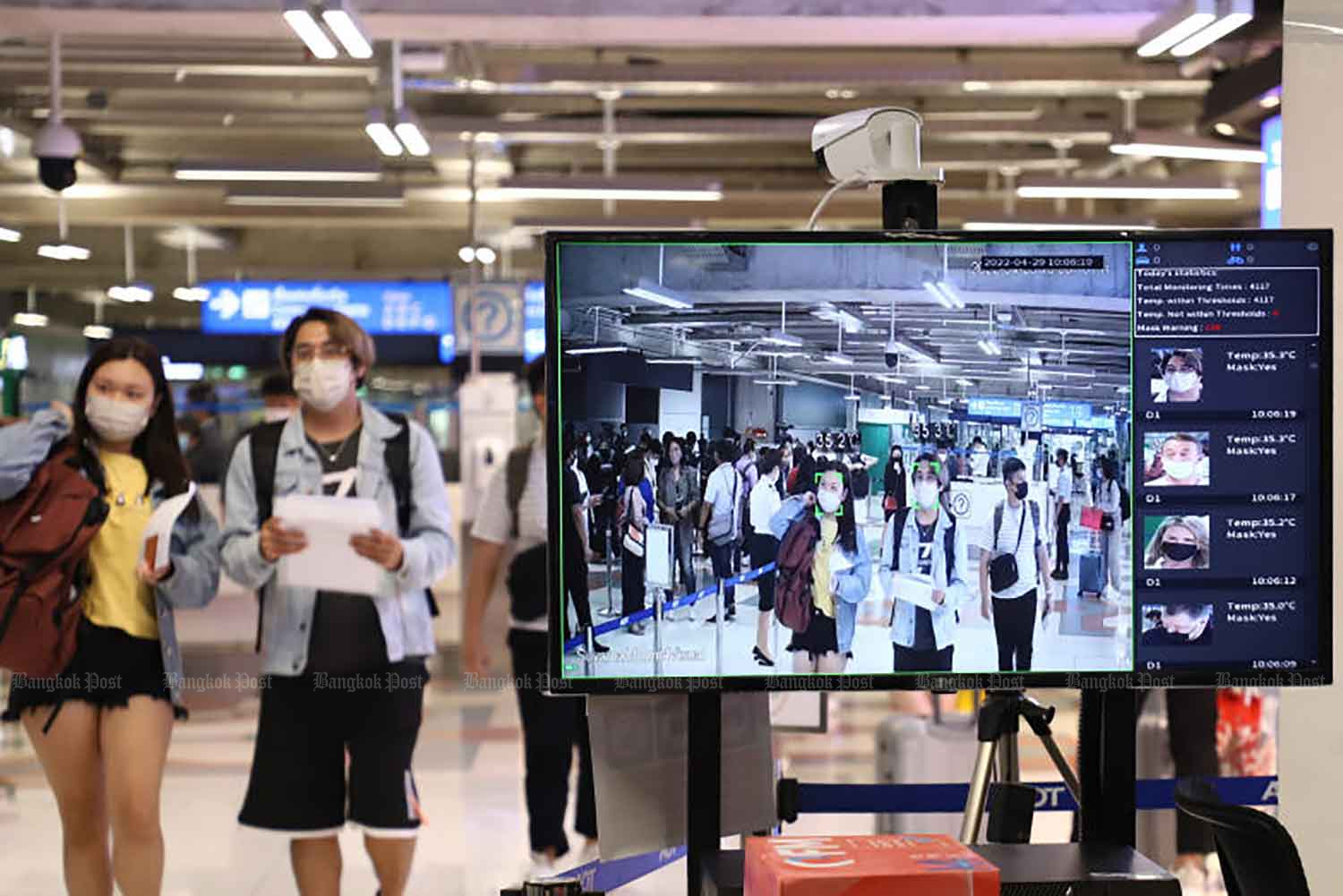
Monkeypox is now classified as a communicable disease that requires close surveillance.
Screening measures are being raised to stem the possible spread of the viral disease, even though not a single case has been detected in the country so far, the Ministry of Public Health said on Wednesday.
The ministry's academic committee on Tuesday reached the decision to upgrade the status of monkeypox, said Dr Chakrarat Pittayawonganon, director of the Bureau of Epidemiology at the Department of Disease Control (DDC).
It has yet to be classified as a dangerous communicable disease, akin to Covid-19, however, because there have been no recorded cases since Thailand began screening international arrivals on Tuesday.
Also, the disease is far less transmissible than the novel coronavirus, he said. "Actually, Thailand has never recorded any cases of monkeypox," Dr Chakrarat said.
Although most of those who are infected recover quickly without any medical intervention, some can experience severe symptoms, especially children who are immunodeficient, he said.
Complications can then include serious infections in the lungs, brain, bloodstream and corneas, he added.
World Health Organization records show there are 131 confirmed cases of monkeypox and 106 suspected cases in 19 countries.
The virus can be categorised into two biological groups: the West African clade and the Central African clade.
The former is considerably less deadly, with a mortality rate of 1% compared to 10% for the Central African clade, Dr Chakrarat said.
Prof Dr Wasun Chantratita, head of the Centre for Medical Genomics at the Faculty of Medicine of Mahidol University at Ramathibodi Hospital, said the first test kit for monkeypox is expected to be available two weeks from now.
The centre is developing it based on the genetic information sequenced from specimens taken recently from infected patients in Portugal and Belgium, said Dr Wasun.
While waiting for the new test kit, which will provide results in 24 hours, polymerase chain reaction (PCR) testing is now the main option but it involves a waiting time of two to four days, he added.
Dr Wasun has called for the strict screening of travellers arriving in Thailand from certain high-risk areas such as parts of southern Europe and Africa.
There should also be measures to screen animals, particularly rodents, brought in from Africa, he said.
Dr Opas Karnkawinpong, director-general of the DDC, said the department is screening international arrivals through the Thailand Pass system, following a rising number of monkeypox infections in several countries.
Prime Minister Prayut Chan-o-cha, meanwhile, issued a warning against the smuggling into Thailand of wild animals as they could be unwitting hosts to the virus, said government spokesman Thanakorn Wangboonkongchana.
Gen Prayut also told officials to scale up border anti-smuggling measures. Chiang Mai airport has also started screening passengers arriving on certain international flights, airport director Wichit Kaeosaithiam said on Wednesday.
The Ministry of Pubic Health advises anyone who is travelling from Thailand to Europe or Africa to exercise extreme caution, avoid crowded areas, frequently wash their hands and always wear a face-covering in public.
Most of the confirmed cases in Europe this month have been in the United Kingdom, Portugal and Spain.
Some reports linked a cluster of cases in Spain to a gay sauna. So far nearly 20 countries where the disease is not endemic have reported outbreaks.